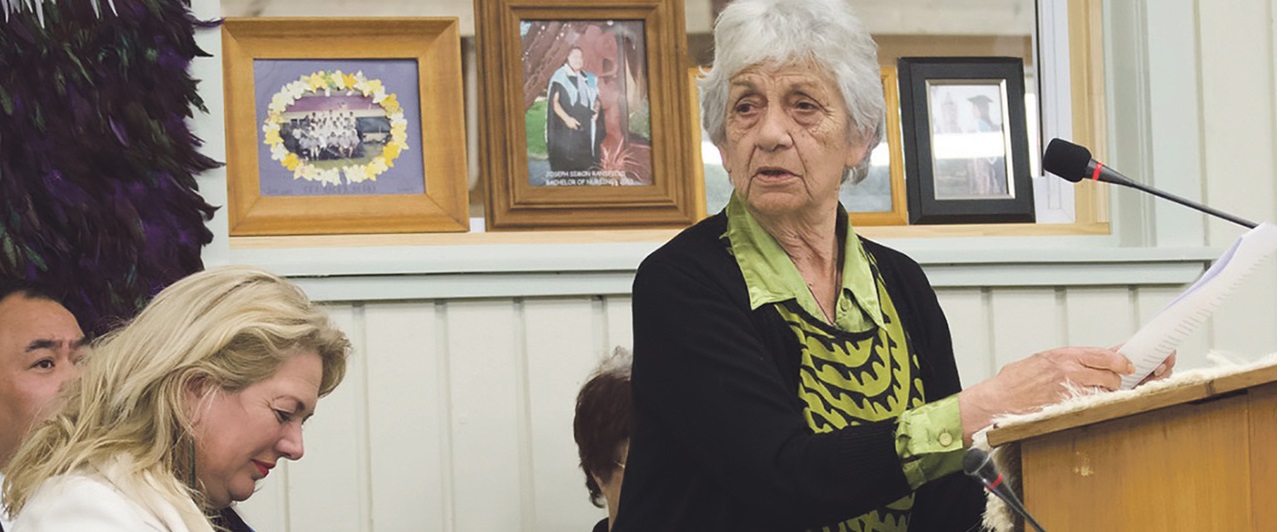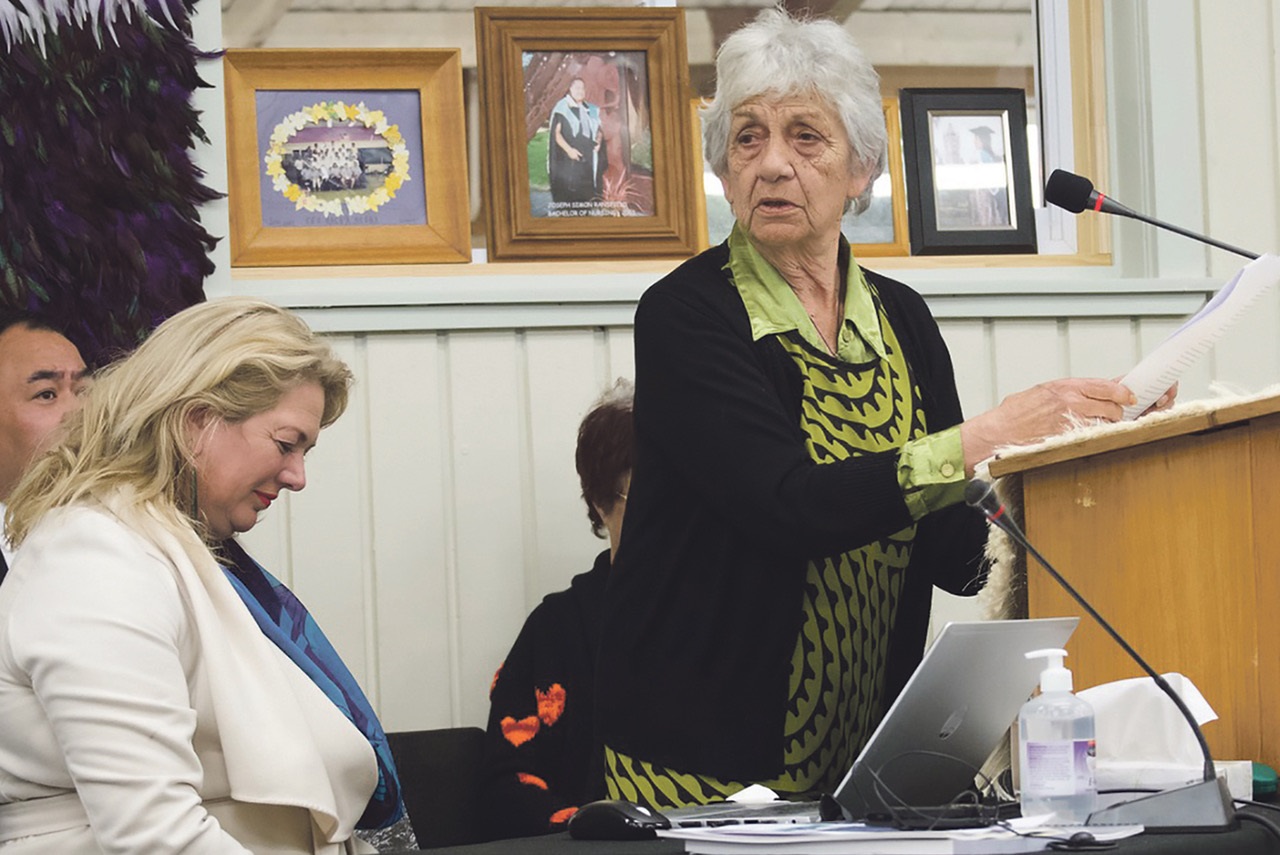
The Waitangi Tribunal was at Tukorehe Marae, Kuku, July 31 to August 4, listening to the treaty claim of Ngāti Tukorehe.
At the same time, Julian Batchelor was conducting a campaign protesting co-governance and maintaining that Māori, and especially a group of “Māori elites”, have privileges they don’t deserve. He says his supporters are “the good guys fighting for democracy”. A friend of his has a Facebook page titled “New Zealand is being looted and is burning”.
This being election year, various political parties are joining the crowd and “spooking” Pākehā voters, as columnist Joel Maxwell put it. Maxwell’s column was titled: “As election looms, can we have a safe campaign season for Māori?”
Māori-bashing has always been part of our politics, but Maxwell concludes his article by quoting National deputy leader Nicola Willis, who said at a recent multi-cultural Matariki celebration: “We are a country forged by the Māori people, with a bicultural foundation in the Treaty of Waitangi, and a multicultural present and future. That is a wonderful thing to have.”
There lies hope, and with the Waitangi Tribunal, the settlement process and a willing public, we can see that hope thrive. I’m encouraged, and as a Māori journalist, over the last 30 years I’ve covered my fair share of treaty stories. This includes Sealord’s, Treelords, the $1billion fiscal envelope, settlements/post-settlements and the many changes brought about to Aotearoa.

Yvonne Wehipeihana Wilson presents before the tribunal at Tukorehe Marae, supported by her daughter, Tina Wehipeihana Wilson, the New Zealand trade commissioner to Taiwan.
Photo Whare Akuhata
Now we’re seeing Matariki holidays, te reo signposts and significantly the growth of the language and our culture. Co-governance seems to have crept up on us but a few years ago I wouldn’t have dreamt it would happen. So, it appears we are becoming a true bi-cultural nation, despite the likes of Julian Batchelor.
I’ve written somewhere that the Waitangi Tribunal process is hugely flawed in that with its findings it can make only recommendations to the government. Numerous Māori agree, including Professor Margaret Mutu, who said the treaty settlement was anything but fair and just.
One of the main issues is that the settlements are generally significantly less in value than the land that was taken or lost due to Crown actions. It’s commonly heard that the monetary settlement is worth less then 1 percent of the value of the land that was lost. It might be an over-simplification, but the example of the car thief becoming the judge and jury is relevant.
Numerous iwi choose not to go to the tribunal, instead going straight through to negotiations to settle treaty grievances. This, in my view, is a mistake.
At Tukorehe Marae I got to witness this process in action. Tukorehe is part of the Ngāti Raukawa iwi confederation in the Manawatā/Horowhenua area. It’s an iwi that I’m connected to, and I was working as a media advisor and a photo/videographer.
I got to hear the usual stories about land lost and taken, language loss, and all the social and economic problems that stem from what largely is the devastating impact of colonisation.
The tribunal process enables iwi to research their history using both their own experts and more well-known historians. This is a hugely important aspect, because vast amounts of knowledge have been lost in the colonising experience.
In the hearings you feel and see the hurt, anger and frustration. Often it becomes visceral. This is the venue for that display and the court is accustomed to these exhibitions of anger. The court shows a tolerance that other courts probably wouldn’t.
The interesting thing is that although there is a constant expression of anger, hurt, loss and grievance, there is also a sense of celebration, of joy, of unity and of aroha. At the conclusion of the hearing the final speakers expressed their gratitude, with mihi to all those involved – the tribunal, the judge and the Crown’s solicitors. The expressions of aroha were profound.
You can see this process is cathartic, a hugely healing process in that you’re able to tell your stories.
This is one of the key aspects of the Waitangi Tribunal and the reason why I advocate that iwi should have their day in court. At its foundation, one group of people recognises that wrongs need to be made right, and another group recognises that justice can be done.
No better example of this is two “Kuku Kids”, Yvonne Wehipeihana Wilson and Sir Douglas Kidd.
“Aunty Yvonne”, the “boss” of Tukorehe Marae, posed the question about why the iwi needed to tell their story to the tribunal. She was told: “History needs to be corrected for our Tukorehe people. The tribunal and the Crown have the ability to do that.”
She appreciated Tukorehe people will not get fully compensation for their losses, but she hopes this process will enable them to reclaim their tino rangatiratanga and provide resources to invest in future generations.
The other “Kuku Kid”, and former “boss” in the House of Representatives, is Sir Doug Kidd. He grew up in Kuku and when Ngāti Tukorehe first lodged its claim, Wai 1913, it was delivered in person to Sir Doug in a woven kete. He is a former member of the tribunal, and apparently watched via the live coverage.
OTHER STORIES
LATEST POSTS
- High Court confirms iwi rights
- Deal puts teaching in iwi hands
- WRM vision celebrated after 50 years
- Hāpū holds ‘only the shadow of the land’
- Bi-lingual signs aid communication
- Kelly-Anne first wāhine carver to graduate
- Plea to Waitangi Tribunal- ‘Give our stuff back’
- ‘Kuku kids’ reclaim their stories at treaty hearings
- An auspicious day for iwi
- Ngāti Huia asserts kaitiakitanga of huia bird
- Ngāti Raukawa one of the most landless iwi, tribunal told

